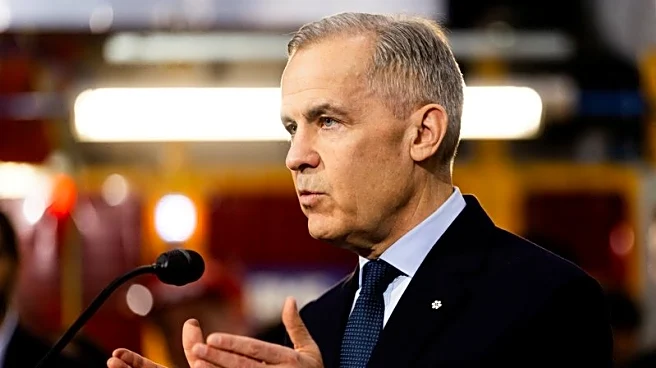What's Happening?
The Trump administration has announced a significant increase in the H-1B visa fee, raising it to USD 100,000 for new applicants. This policy, effective from September 21, 2025, affects skilled international professionals, particularly from India, and imposes substantial costs on companies hiring foreign workers. The decision has prompted legal scrutiny and concerns among immigration attorneys, who advise current H-1B visa holders outside the U.S. to return promptly to avoid entry issues. The fee hike is expected to alter the U.S. employment landscape, impacting businesses reliant on skilled foreign labor.
Why It's Important?
The increase in H-1B visa fees could have far-reaching implications for the U.S. economy and its global competitiveness. By raising the cost of hiring skilled foreign workers, the policy may deter companies from seeking international talent, potentially leading to a shortage of skilled professionals in critical sectors like technology and healthcare. This move could also strain U.S.-India relations, as Indian professionals constitute a significant portion of H-1B visa holders. The legal challenges anticipated against this policy highlight the contentious nature of immigration reforms under the Trump administration.
What's Next?
The policy's implementation may face legal challenges, with businesses and advocacy groups likely to contest the fee hike in court. Companies may also explore alternative strategies to mitigate the impact, such as increasing domestic hiring or investing in automation. The outcome of these legal battles and the administration's response will shape the future of U.S. immigration policy and its influence on the global workforce. Stakeholders will closely monitor the situation to assess the long-term effects on the U.S. labor market and international relations.












